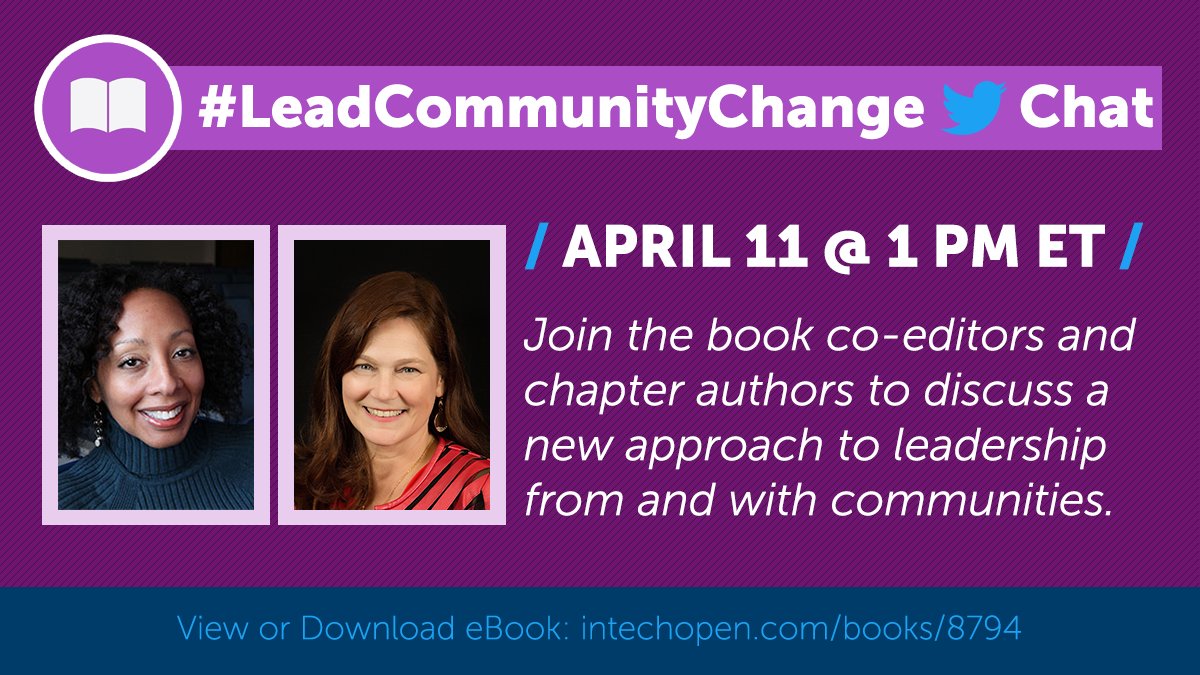Fernandez and Corbie author book highlighting vital role of community based change in achieving health equity
Co-edited by Claudia S.P. Fernandez, DrPH, and Giselle Corbie, MD, healthcare experts from nurses to social workers present a way forward which shifts away from our fragmented and often judgmental approach to health in the new book Leading Community Based Changes in the Culture of Health in the US – Experiences in Developing the Team and Impacting the Community.
Giselle Corbie, MD is also Associate Director of Engaged Science at NC TraCS.
Leading Community Based Changes in the Culture of Health in the US – Experiences in Developing the Team and Impacting the Community is available through IntechOpen, the world's largest publisher of Open Access books. Co-edited by Claudia S.P. Fernandez, DrPH, and Giselle Corbie, MD, healthcare experts from nurses to social workers present a way forward which shifts away from our fragmented and often judgmental approach to health.

Join the editors and authors on Monday, April 11 from 1-2 p.m. EDT for a live Twitter chat #LeadCommunityChange!
"Traditional approaches have failed to move the needle on our country's most deeply entrenched problems," said Corbie, Clinical Scholars Co-Director and Director of the Center for Health Equity Research (CHER) at the School of Medicine at the University of North Carolina at Chapel Hill. "Despite major advances in medicine and healthcare, these Wicked Problems persist and particularly for marginalized groups. Challenges in moving toward a Culture of Health are ever-evolving and ever-lasting. They require an infinite mindset from leaders and this book provides real community based examples."
Clinical Scholars led by the University of North Carolina at Chapel Hill and Culture of Health Leaders are two national mid-career leadership programs of the Robert Wood Johnson Foundation (RWJF). Both programs support the emergence of collaborative and systemic approaches, bringing teams of leaders together with others in the community to work toward the common goal of lessening health disparities.
In each chapter of this book, the authors share how they tackled seemingly intractable issues, making headway through applying principles of adaptive leadership in unbounded systems to create not only outcomes but also impacts on health disparities. The authors include public health professionals who are dentists, dietitians, evaluators, executives, nurses and nurse practitioners, occupational therapists, physicians, professors, psychologists, social workers, and researchers, including 25 Clinical Scholars alumni.
"Each of these communities show what's possible when equity centered leadership is valued and developed," said Fernandez, Clinical Scholars Co-Director and Associate Professor in the Department of Maternal Child Health at the Gillings School of Global Public Health at the University of North Carolina at Chapel Hill. "Our model has shown itself to build individuals, teams, community partnership, and make the 'Triple S Impacts' of success, sustainability, and scalability in complex issues affected by the social determinants of health."
This book is intended for individuals committed to working collaboratively to reconstruct policies and practices to support health equity, especially in communities traditionally labeled as high-risk and hard to engage. Community leaders, public health officers, county commissioners, healthcare system administrators, and others will gain insights from real-world implementations to apply to their own work.
The book editors and authors invite interested parties to participate in a live Twitter chat on April 11 in conjunction with National Interprofessional Health Care Month and National Minority Health Month. To stay updated when the specific time is shared, follow @CSPfellows or #LeadCommunityChange.
To learn more about the book, visit: clinicalscholarsnli.org/book
To view or download the book chapters directly, visit: intechopen.com/books/8794
Clinical Scholars is a national leadership program for experienced health care providers. Working in teams from diverse disciplines, Clinical Scholars Fellows receive three years of funding for projects addressing complex health problems, and equity-centered leadership training to extend their influence and impact. Since receiving funding for the current iteration of the program from RWJF in 2016, the national program center at UNC-Chapel Hill has supported 162 Fellows and 44 projects across 28 U.S. states and territories.
Originally published at news.unchealthcare.org



